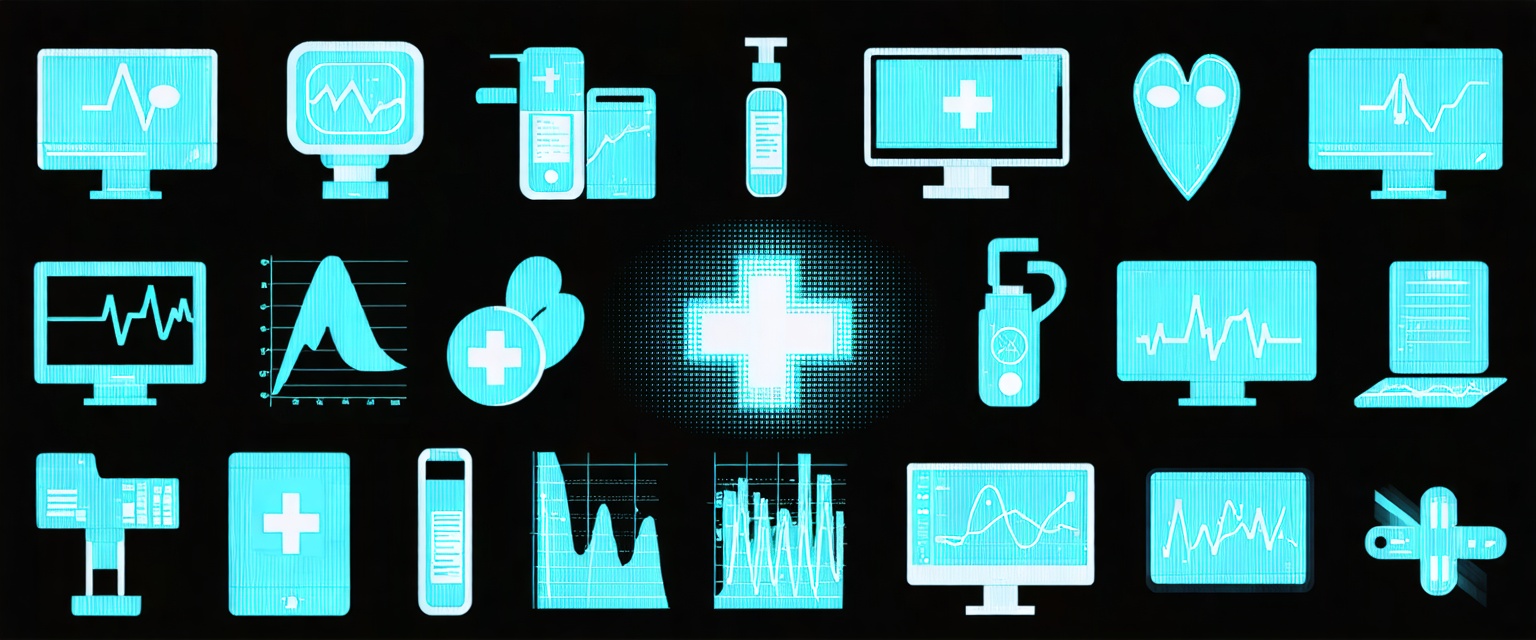Discover how AI agents revolutionize protocol adherence for clinical managers, ensuring real-time compliance and patient safety while minimizing errors.
Clinical managers face a major challenge: monitoring protocol adherence across fragmented, disconnected systems. When critical data is buried in incompatible platforms, tracking compliance becomes chaotic, jeopardizing patient safety, research integrity, and regulatory standing. Thanks to advancements in Agentic AI, it’s now easier than ever to close these gaps.
With Datagrid’s 100+ data connectors, AI agents can automatically monitor and flag protocol deviations in real time. This article explores how AI transforms protocol adherence from a manual burden into a streamlined, proactive process.
What AI Agents Do in Protocol Adherence Monitoring
Definition of Protocol Adherence Monitoring
AI agents act like autonomous digital assistants that handle complex tasks, make decisions, and integrate with existing clinical systems, all without constant human oversight, similar to how AI optimizes brand guidelines in other industries. In protocol adherence monitoring, they rely on machine learning, natural language processing (NLP), and data analytics to interpret clinical guidelines and detect any deviations from those protocols in real time.
Why It Matters for Clinical Managers
For clinical managers, ensuring protocol adherence is essential to maintaining patient safety, data integrity, and regulatory compliance. However, manual methods are often slow, error-prone, and difficult to scale, especially in multi-site trials or settings with constantly evolving protocols.
AI agents alleviate this burden by automating the detection of non-compliance, delivering timely alerts, and allowing managers to intervene before issues escalate, similar to how organizations automate social monitoring to stay ahead of trends. This shift enables more proactive clinical oversight and frees up staff time for high-value work.
Common Manual Bottlenecks
Traditional protocol monitoring methods present several challenges:
- Manual data collection from electronic health records (EHRs), trial management systems, and wearables
- Interpreting complex protocol documents without automated assistance
- Tracking treatment plan adherence across diverse patient cohorts
- Compiling compliance reports and audit logs by hand
- Responding to deviations only after periodic manual reviews
AI agents address these time sinks by:
- Pulling and analyzing data from various sources in real time
- Understanding protocol steps using NLP to identify risks
- Providing tailored training to staff based on knowledge gaps
- Monitoring treatment adherence through connected tools
- Automatically generating compliance reports for regulatory needs
Just as AI agents streamline content creation and AI-powered proposal creation workflows in other industries, they bring the same intelligent automation to complex healthcare documentation and monitoring tasks.
Designing AI Agents to Automate Protocol Adherence Monitoring
Creating effective AI agents for protocol monitoring requires thoughtful design with these essential building blocks:
1. Automated Data Collection Systems
AI agents need robust data collection capabilities to monitor adherence effectively. These systems must connect seamlessly with various data sources and platforms to streamline data processes, allowing AI agents to build a comprehensive, real-time picture of protocol adherence, similar to how construction automation with AI improves efficiency in the construction industry.
- Electronic health records (EHRs)
- Wearable devices and biosensors
- Patient-reported outcome measures (PROMs)
- Clinical trial management systems (CTMS)
2. Natural Language Processing (NLP)
NLP allows AI agents to extract meaningful insights from unstructured information like clinical notes, patient feedback, and protocol amendments. Advanced NLP models can understand nuanced clinical language, identifying potential protocol issues that traditional methods might miss, similar to how businesses automate lead enrichment to gather comprehensive customer data.
3. Real-Time Monitoring and Alerts
Effective AI agents continuously monitor trial data and activities, instantly detecting protocol violations, automatically alerting study coordinators, and enabling quick intervention, similar to how businesses automate analytics reporting to stay informed in real time. This real-time capability significantly shrinks the gap between when a deviation happens and when it's addressed.
4. Predictive Analytics
Machine learning models analyze historical and current trial data to forecast adherence risks, identify participants likely to drop out, and predict protocol deviations before they occur, much like how companies maximize leads with AI to identify potential customers.
5. Explainable AI
Transparent, interpretable AI models are essential in clinical settings. They provide clear justification for AI-driven adherence decisions, support regulatory compliance audits, and build trust with clinical staff and patients. Enhancing communication through transparent AI models is crucial, much like how AI revolutionizes client interactions in construction industries.
Challenges in Implementing AI
While AI agents offer giant benefits for protocol adherence monitoring, clinical managers need to navigate several important challenges:
1. Data Privacy and Security
AI systems need access to sensitive patient information to work effectively. Healthcare organizations need strong safeguards, including data encryption, strict access controls, and anonymization techniques where possible, just as in AI-driven sales strategies, where data security is crucial.
2. Transparency and Explainability
The "black box" nature of some AI algorithms creates problems in healthcare settings. Doctors, patients, and regulators need to understand how AI systems reach their conclusions, especially when they affect patient care or compliance decisions.
3. Potential for Bias
AI models trained on historical healthcare data may unintentionally perpetuate existing biases. Regular audits and bias mitigation strategies are essential to ensure AI treats all patients and scenarios fairly.
4. Integration with Legacy Systems
Many healthcare facilities rely on older systems that don't easily connect with new AI technologies. Smooth integration requires careful planning, potential infrastructure upgrades, and a step-by-step implementation approach.
5. Regulatory Compliance
The rules governing AI in healthcare are constantly evolving. Clinical managers must stay current with changing requirements from bodies like the FDA, especially for AI systems that might be classified as "software as a medical device" (SaMD), similar to how organizations rely on finance compliance automation to meet regulatory standards.
Comparing AI with Traditional Methods in Protocol Monitoring
AI-powered approaches to protocol adherence monitoring offer clear advantages over traditional manual methods:
1. Time Efficiency
Traditional approaches rely on periodic manual reviews, creating delays in finding and fixing protocol deviations. Just as businesses automate construction proposals to save time, AI systems analyze and monitor in real-time, allowing immediate action when issues arise.
2. Error Rates
Human error is inevitable in manual monitoring. AI significantly reduces this risk through automated data collection and analysis. This feature allows clinical managers to focus on decision-making and patient outcomes rather than routine checks.
3. Resource Requirements
Traditional methods consume substantial staff time for data review, documentation, and compliance checks. AI automation dramatically cuts this burden by handling compliance reports automatically, freeing clinical staff for more important tasks. Automating these reports, much like how marketers automate campaign reports, can save time and reduce errors.
4. Predictive Capabilities
Unlike traditional methods that react to problems, AI can predict potential adherence issues before they happen. Machine learning models analyze patterns from health records, wearable devices, and self-reported data to predict which patients might not comply, allowing proactive interventions.
Datagrid for Healthcare Professionals: Automating Protocol Adherence Monitoring
Healthcare professionals navigate complex patient data, compliance requirements, and administrative demands daily. Datagrid's AI-powered platform transforms these challenges into opportunities for enhanced patient care and operational efficiency:
- Streamlined Medical Documentation: Process thousands of patient records, medical histories, and clinical notes simultaneously. Extract critical patient information, identify patterns, and organize data for quick retrieval and analysis.
- Insurance Claim Processing: Automate the review and processing of insurance claims by deploying AI agents that can validate coding, identify documentation gaps, and accelerate reimbursement timelines.
- Treatment Protocol Analysis: Compare patient cases against evidence-based treatment protocols and clinical guidelines to support medical decision-making and identify optimal care pathways.
- Medication Management: Monitor prescription patterns, potential drug interactions, and adherence trends across your patient population, flagging high-risk situations for intervention.
- Regulatory Compliance Support: Stay ahead of HIPAA, GDPR, and other healthcare regulations with AI agents that continuously audit documentation practices and identify compliance risks before they become issues.
- Population Health Insights: Analyze demographic data, health outcomes, and social determinants of health across your patient population to develop targeted preventive care initiatives and improve community health outcomes.
- Clinical Research Support: Accelerate research initiatives by having AI agents extract and organize relevant data from medical literature, clinical trials, and patient databases, identifying potential research participants and outcome patterns.
By implementing Datagrid in your healthcare practice or institution, your clinical team can dedicate more time to patient care while AI handles the data-intensive tasks that traditionally consume valuable clinical hours and administrative resources.
Simplify Healthcare Tasks with Datagrid's Agentic AI
Don't let data complexity slow down your team. Datagrid's AI-powered platform is designed specifically for teams who want to:
- Automate tedious data tasks
- Reduce manual processing time
- Gain actionable insights instantly
- Improve team productivity
See how Datagrid can help you increase process efficiency.
Create a free Datagrid account













